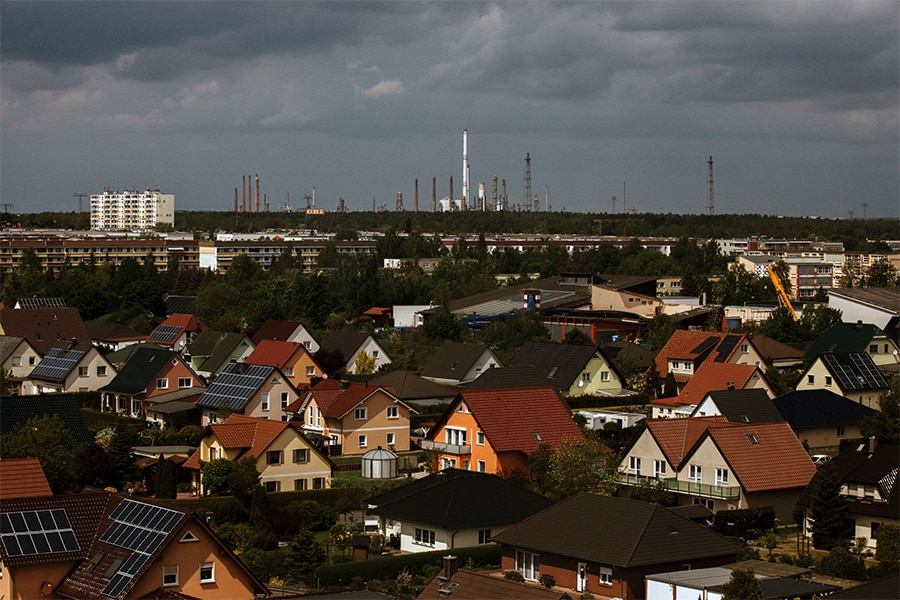
The refinery standing between Germany and an oil embargo
Germany relies on Russia for about one-third of its oil, and Robert Habeck, the economy minister and vice chancellor, has spent weeks preparing for an embargo, jetting from the United Arab Emirates to Washington to Warsaw, Poland, to line up alternative sources of crude
 The oil refinery in Schwedt, Germany, on May 13, 2022. Roughly a tenth of the city’s 30,000 inhabitants hold secure union jobs at the refinery and its supporting industries. (Katrin Streicher/The New York Times)
The oil refinery in Schwedt, Germany, on May 13, 2022. Roughly a tenth of the city’s 30,000 inhabitants hold secure union jobs at the refinery and its supporting industries. (Katrin Streicher/The New York Times)
SCHWEDT, Germany — For decades, crude oil piped in from Russia has flowed into a giant refinery in Schwedt, an industrial city on the Oder River in Germany, providing jobs for thousands of workers and a reliable source of gasoline, jet fuel and heating oil for residents of Berlin.
Now, as European Union member states struggle to agree on the terms of an oil embargo to punish Moscow for its invasion of Ukraine, the Schwedt refinery has become the major stumbling block in Germany’s effort to sever its reliance on Russian oil. The prospect has raised alarm among the refinery’s 1,200 employees.
Germany relies on Russia for about one-third of its oil, and Robert Habeck, the economy minister and vice chancellor, has spent weeks preparing for an embargo, jetting from the United Arab Emirates to Washington to Warsaw, Poland, to line up alternative sources of crude.
“The last third is the problem,” Habeck said in a video aimed at explaining the situation to Germans. And most of that Russian oil comes through the refinery in Schwedt.
The refinery is a looming symbol of how deeply Germany’s oil and gas needs are tied to its giant energy exporter to the east. The PCK refinery — the name is a nod to its East German roots as the state-owned “Petrolchemisches Kombinat,” or Petrochemical Combine — is owned by Rosneft, the Russian state-owned oil company. It is connected to the Soviet-era Druzhba pipeline, one of the world’s longest, bringing oil from Siberian wells to Western Europe.
©2019 New York Times News Service







